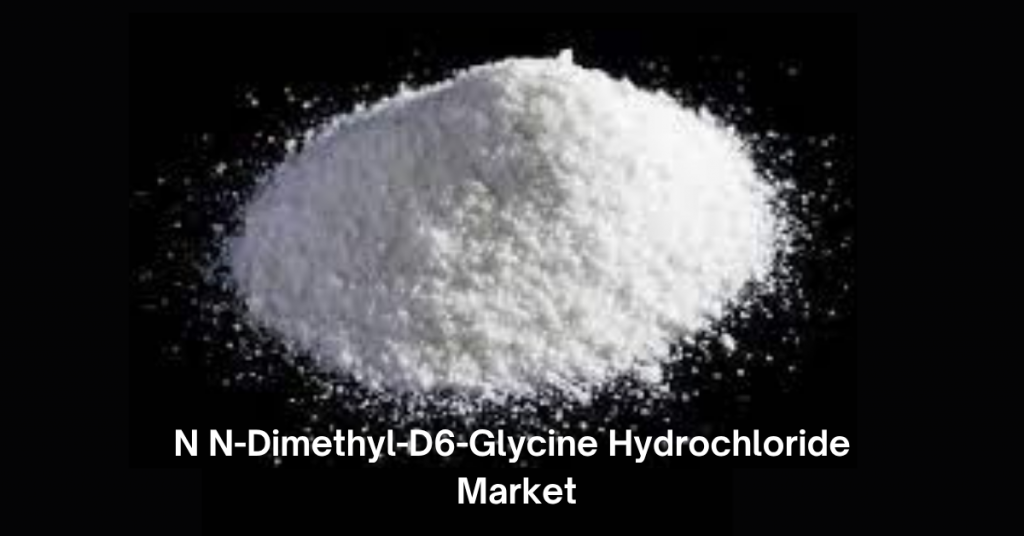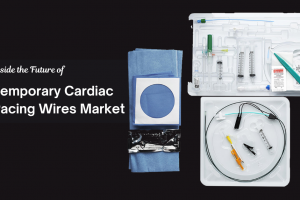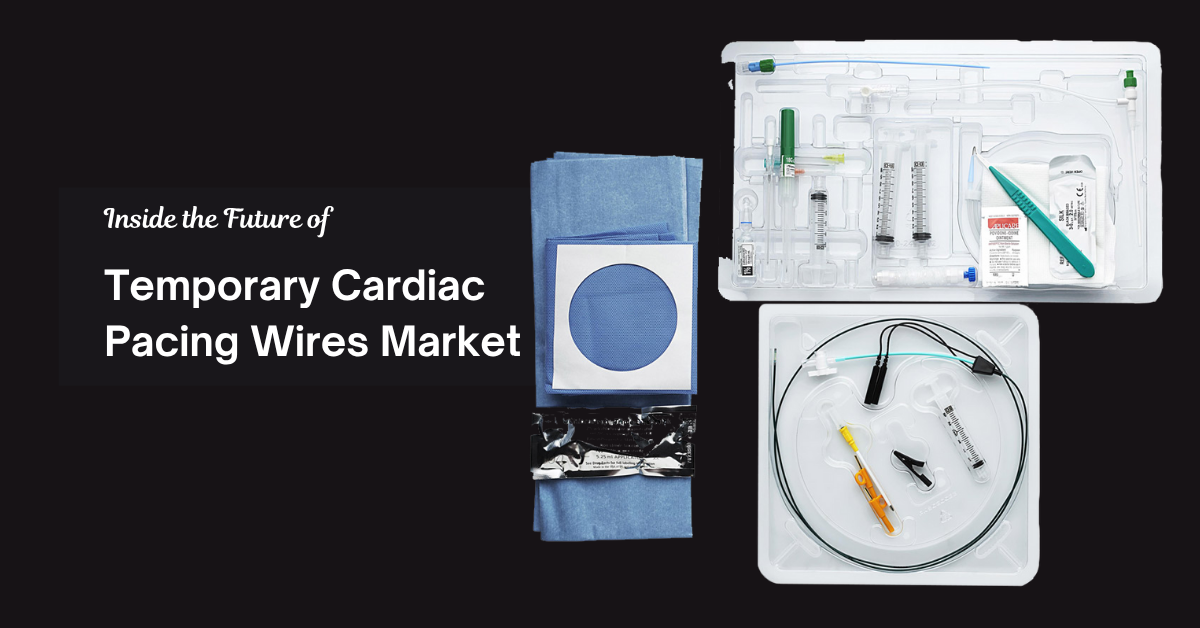
Market Overview
The N N-Dimethyl-D6-Glycine Hydrochloride Market was valued at USD 1,419.51 million in 2018 and grew to USD 1,982.78 million in 2024. It is anticipated to reach USD 3,046.43 million by 2032, reflecting a compound annual growth rate (CAGR) of 5.13% during the forecast period. This consistent growth is driven by its pivotal role in enhancing the precision and accuracy of mass spectrometry-based studies.
With increased adoption in protein labeling and pharmaceutical assays, N N-Dimethyl-D6-Glycine Hydrochloride is becoming an indispensable reagent in modern research workflows. Its isotope-labeled properties make it exceptionally valuable in pharmacokinetic studies, stability testing, and tracer applications. Moreover, as personalized medicine and precision diagnostics gain momentum, the relevance of high-purity labeled compounds is stronger than ever.
In today’s scientific landscape, reproducibility and standardization are at the forefront of research and clinical diagnostics. The market reflects a shift from traditional reagents to more sophisticated and robust labeling agents capable of meeting regulatory expectations. As pharmaceutical and biotechnology sectors embrace high-throughput screening, the demand for stable isotope-labeled reagents such as N N-Dimethyl-D6-Glycine Hydrochloride is poised to witness sustained growth globally.
Read full report: https://www.credenceresearch.com/report/n-n-dimethyl-d6-glycine-hydrochloride-market
Market Drivers
Growing Adoption in Metabolomics and Proteomics
Metabolomics and proteomics have become core focus areas in modern biology and clinical research. N N-Dimethyl-D6-Glycine Hydrochloride supports accurate quantification in such complex biological matrices by serving as a reliable internal standard. Its deuterated profile ensures precise mass separation, enabling researchers to track even subtle molecular changes in metabolic pathways. As omics-based diagnostics expand, the compound’s usage is likely to grow.
Rise of Advanced Drug Formulations
Newer drug formulations demand intensive preclinical testing and bioanalytical validation. Labeled reagents like N N-Dimethyl-D6-Glycine Hydrochloride assist in drug profiling, dosage optimization, and toxicology studies. They help map drug metabolism by offering clear insights into compound stability and behavior. In the context of regulatory trials, these reagents also support compliance through validated reference standards.
Emphasis on Quality Assurance in Research
Reproducibility is a major concern in global research, prompting scientists to prefer standardized, high-purity materials. This compound’s consistent isotopic purity and chemical performance reduce experimental variability, making it essential for reproducible protocols. Organizations with ISO or GMP certifications especially rely on such certified reagents for regulatory submissions and peer-reviewed publications.
Expansion of Biotech Startups and R&D Funding
An increasing number of biotechnology startups are emerging in areas such as biosensors, bioinformatics, and therapeutic peptides. These startups heavily invest in analytical tools and labeled compounds for method development and validation. Simultaneously, public and private R&D funding is helping institutions adopt advanced chemical standards, fueling further market expansion.
Market Challenges
Limited Scalability of Manufacturing
Producing high-purity deuterated compounds is technologically intensive and not easily scalable. Many manufacturers face constraints in expanding their production without compromising purity or yield. As demand grows, maintaining consistent output becomes a critical challenge, especially for custom synthesis applications and bulk supply contracts.
Niche Awareness Among End Users
In many labs and research institutions, the understanding of when and how to use isotope-labeled compounds remains limited. This lack of product knowledge restricts the compound’s penetration beyond high-end pharmaceutical or analytical environments. Training and technical education are essential to enhance market understanding and usage.
High Initial Investment in Infrastructure
Using deuterated reagents effectively requires sophisticated instrumentation such as LC-MS or GC-MS systems. For institutions lacking advanced infrastructure, the benefits of such compounds are not fully realized. The high capital cost associated with analytical systems can be a deterrent in developing regions or small-scale labs.
Fragmented Distribution Network
While manufacturers are largely concentrated in North America and Europe, distribution challenges remain in Asia, Latin America, and parts of Africa. Lead times, customs clearance, and cold-chain logistics complicate global supply, sometimes resulting in inconsistencies or stockouts. A fragmented supply chain poses a significant threat to smooth adoption.
Market Opportunity
Growth in Companion Diagnostics
The evolution of targeted therapies has led to the rise of companion diagnostics. N N-Dimethyl-D6-Glycine Hydrochloride is well-suited for use in assay development and quality control of diagnostic kits, particularly those focused on metabolic or enzymatic disorders. This expanding area holds long-term potential for reagent manufacturers.
Use in Environmental and Food Safety Testing
Beyond healthcare, the compound is also finding niche applications in testing contaminants, pesticide residues, and drug residues in food products and environmental samples. These analytical domains demand precise calibration standards, where deuterated compounds play a critical role in accurate detection.
Supportive Regulatory Trends for Labeling Standards
Regulatory bodies are increasingly recommending the use of internal standards for bioanalytical method validation. As these standards become a norm across countries, the demand for certified stable isotope-labeled reagents will likely see a structural uplift across all regions and sectors.
Customized Formulation Demand
Pharmaceutical and academic users are increasingly seeking custom-labeled compounds tailored to specific project needs. This opens up a new avenue for specialized manufacturers who can offer customized synthesis with strict control over purity and isotopic concentration, especially for research in rare or experimental pathways.
Market Segmentation
Based on Application:
- Peptide Synthesis
- Protein Labeling
- Analytical Chemistry
- Pharmaceutical Research
Based on End-User:
- Academic and Research Institutions
- Pharmaceutical and Biotechnology Companies
- Contract Research Organizations (CROs)
- Analytical Laboratories
Based on the Geography:
North America
- U.S.
- Canada
- Mexico
Europe
- UK
- France
- Germany
- Italy
- Spain
- Russia
- Belgium
- Netherlands
- Austria
- Sweden
- Poland
- Denmark
- Switzerland
- Rest of Europe
Asia Pacific
- China
- Japan
- South Korea
- India
- Australia
- Thailand
- Indonesia
- Vietnam
- Malaysia
- Philippines
- Taiwan
- Rest of Asia Pacific
Latin America
- Brazil
- Argentina
- Peru
- Chile
- Colombia
- Rest of Latin America
Middle East & Africa
- GCC Countries
- South Africa
- Rest of the Middle East and Africa
Regional Analysis
North America maintains its leading position in the market due to its mature pharmaceutical ecosystem and early adoption of advanced analytical methods. The U.S. benefits from a robust network of biotech firms and clinical laboratories that regularly employ labeled compounds in routine drug testing and quality assurance protocols. Canada and Mexico also contribute through cross-border research initiatives and rising clinical trial activities.
Europe remains a highly active market driven by government-supported life sciences research and strong regulatory frameworks. Countries like Germany and the UK are spearheading innovations in therapeutic proteins and drug testing methodologies. The region’s focus on harmonizing GMP practices further drives demand for validated and traceable labeling agents across various domains.
Asia Pacific continues to be a dynamic growth hub. China’s rapid investment in biomedical infrastructure and India’s dominance in contract research make them top regional contributors. South Korea and Japan are advancing in diagnostic technology, creating a steady stream of demand for deuterated analytical standards. Regional governments are promoting foreign collaborations and tech transfer to strengthen local capacities.
Latin America shows growing adoption particularly in pharmaceutical outsourcing, food safety labs, and university-led research. Brazil and Argentina are increasing local capabilities through government grants and international partnerships. Though the market is smaller, it is gaining momentum with increased emphasis on analytical quality and reporting accuracy.
Middle East and Africa are gradually opening up with healthcare modernization projects, especially in UAE, Saudi Arabia, and South Africa. While the use of labeled compounds is currently concentrated in a few elite institutions, improvements in laboratory accreditation and procurement systems are expected to broaden market access over time.
Top Companies
- Cambridge Isotope Laboratories, Inc. (CIL)
- Merck Group
- Isotec Inc.
- Toronto Research Chemicals (TRC)
- Wako Pure Chemical Industries, Ltd.
- Eurisotop
- Omicron Biochemicals, Inc.
- Goss Scientific Instruments Ltd
- Sigma-Aldrich Corporation
- Santa Cruz Biotechnology
Future Outlook
- Stable isotope-labeled APIs may emerge in personalized medicine.
- CROs will increasingly rely on isotope standards in global trials.
- Asia Pacific will become a prime manufacturing and export hub.
- Environmental testing labs may adopt labeled glycine compounds.
- Hybrid diagnostic devices will boost usage of isotopic reagents.
- Digital lab management tools will support traceability in usage.
- Custom synthesis offerings will rise among specialized suppliers.
- Academic-industry consortia will push for uniform reagent quality.
- Focus on green isotope labeling processes will improve sustainability.
- High adoption in regulatory submission workflows will fuel demand.
Read full report: https://www.credenceresearch.com/report/n-n-dimethyl-d6-glycine-hydrochloride-market


